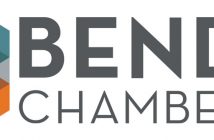An interview is a traditional stage of staff recruitment. Its main goal is to choose the ideal candidate that meets all criteria of the vacancy, and the central questions are aimed at assessing the professionalism and personal qualities of the applicant.
Many believe that interviews in the private and federal sectors have no differences. They are very similar because hiring managers always have the same goal – to find the perfect employee. However, the federal industry has a certain number of features that we will discuss in this article.
Types of Federal Interviews
How to understand what type of interview awaits you? Your profession involves a specific type of interview. You can also find the notice in the vacancy description. But in case you have not found any information, and do not know what awaits you, you have 2 other options:
- Ask a federal recruiter directly. It is a 100% option to find out what type of interview you should prepare for. However, this will show your uncertainty and the “need of the preparation.”
- Contact the federal resume writer. As a rule, these professionals create resumes or other documents (cover letters, CVs), and also provide consultations and even interview preparations. A federal resume writer can solve all your issues with federal papers and interview process.
If the applicant is required stress resistance, non-conflict, and high reaction rate, federal recruiters use stress interviews. Brain teaser interviews are often conducted with applicants of creative professions that require innovative thinking and creativity – marketers, programmers, designers. It helps to evaluate whether the candidate can find unexpected solutions.
In other cases, there is a fairly structured, situational, projective interview, or psychological testing using “cases” that help to find out conflict resolution skills of the candidate. It allows HR to evaluate the applicant with high reliability and understand how suitable he / she is for this position.
The Federal Interview Process
An interview is a process of interaction between two parties. The employer has the opportunity to select the required candidate, and the applicant to evaluate the agency in general.
Most federal interviews are conducted following the methodology developed by the US government. It allows recruiters to objectively implement competitive procedures for filling government vacancies and form a personnel reserve. However, each agency has the right to use its own personnel selection methods and type of interview.
How to pass an interview for public service? It is not an easy question. There are 2 main stages of the federal interview. Most likely, you will need to pass only the first one. However, top public vacancies involve passing through two of them:
- Preliminary meeting with a human resources specialist.
- Interview with the selection committee.
A federal recruiter has the right to manage an interview with a candidate in a preliminary mode to ask initial questions. If you have completed this stage, HR will notify the selection committee, which will prepare a new list of questions.
Meeting with the selection committee is a common thing for federal workers. If you have not had such an experience before, you should not worry. During the meeting, members of the committee discuss the results of the tasks (envisaged by the competition), ask questions that help establish professional skills, knowledge, and experience. In other words, this is a regular interview with several participants, instead of a one on one meeting.
What Questions Will You Be Asked During the Federal Interview?
Federal interview questions largely depend on the nature of the vacant position. Human resources specialist will rely on the selection criteria for the vacancy, character qualities necessary for the adequate performance of official duties.
Questions at the interview (the civil service involves extensive knowledge in various areas of legislation) are formed according to professional directions. Making a list of questions, a federal recruiter relies on:
- your age and education level;
- job responsibilities for public service vacancy;
- previous work experience.
Remember that some questions for public service vacancies are based on the Constitution of the United States and Federal Laws and Regulations awareness. Most likely, you will be tested for knowledge of:
- English;
- Civil Service Legislation;
- Employment legislation of your vacancy;
- Anti-Corruption Act (AACA);
- Information and communication technology.
Once again, all questions will be somehow related to your position. Therefore, you are unlikely to hear anything new. However, do not underestimate the interview process, and it is best to set aside time for preparation.
Five most common federal interview question:
- Why did you choose to work in the federal sector?
Do not say that you like it. Say that you respect people who work for the state and want to be among them. Also, you can note how you value social bonuses proved by the state to employees and why it is essential.
- Why do you want to work in our agency in this position?
You should give serious and specific reasons: the desire to apply your qualifications and experience, where they will bring max benefit to society, willingness to work in a strong team of professionals, etc.
- What can you do better for us than another applicant?
It is the best question to name your main advantages over other candidates. You should demonstrate your ability to convince while emphasizing your benefits.
- Why did you leave your previous job?
Do not tell about conflicts, do not scold your former boss and colleagues. A qualified candidate will emphasize the positive side of previous work and relationships with people. Indicate worthy reasons for leaving: the desire for career growth, passion for realizing your professional and interpersonal abilities.
- How do you imagine your position in five (ten) years?
People aimed at individual success will readily tell about their professional growth ambitions. Form the clear goals that you can share with your future employer. You can also state that you are hoping to get promotions at this agency in the next 2-3 years.
Conclusion
Focus on your answers, not your employer’s thoughts! It is impossible to predict the recruiter’s questions. You should concentrate on your answers and do everything you can to get the desired position.
Most importantly, try to be sincere. And remember – you should also evaluate the employer. Ask questions that are important to you. Not only about the salary and work schedule, but about the functionality, features of the company, what career prospects await you, and why the vacancy has opened. For some reason, many candidates are afraid to ask questions. But your questions show your interest and serious approach to the future job position.
Good luck with the interview!
About the author
Richard is a federal career expert and USAJOBS consultant providing professionals of all career levels – from C-suite to new graduates with targeted resumes, cover letters, and engaging LinkedIn Profiles.





